Traditional patient care + cutting-edge medical science
Before we outline the approach to medical care that is practiced at the San Carlos Medical Clinic, it is worthwhile to take a moment to briefly review how medicine is typically practiced in the United States in 2015.
The 2015 United States Medical Model: Overloaded primary care physicians
often deliver impersonal and fragmented medical care
It is no secret that primary care physicians in the United States are over-tasked.
A 2014 Washington Post article -- just one of countless articles on this subject -- succinctly quantified just how overtaxed the average American primary care physician is. A small excerpt from the article:
"According to a 2013 survey by the American Academy of Family Physicians, the average member of that group has 93.2 "patient encounters" each week -- in an office, hospital or nursing home, on a house call or via an e-visit...that's about 19 patients per day...(on average there were) 2,367 people under each physician's care."
The individual American doctor is not entirely to blame for the brevity of patient visits or the lack of information communicated within them. With 93.2 "encounters" (certainly as impersonal a term for a visit with your doctor as is available in the English language) per week, is it any wonder that primary care physicians in the United States over-rely on over-testing (which doesn't require any patient interaction) and pass their patients off to specialists physicians (who don't know you in the first place) for treatment?
Obamacare -- however noble its goals and the manifestly obvious merits of extending health care to more people -- will only exacerbate these problems, at least in the short term: large numbers of patients are entering the health care system in the United States without a proportionate increase in the number of doctors, nurses, hospital beds, medical labs and all of the other medical infrastructure needed to support their diagnosis and treatment.
Unfortunately, the United States medical community has managed to successfully export the assembly-line model of medical care to Canada, where wait-times for treatment of non-critical (and sometimes even critical) conditions are a constant source of complaint by Canadians regarding Health Canada.
This is not the type of primary medical care that patients at the San Carlos Medical Clinic receive.
A model of health care that is built upon doctor - patient communication
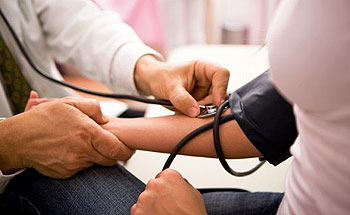
Typical new-patient intake time at the San Carlos Medical Clinic is an hour or more, all of which is spent directly with Dr. Yakushevich, not an anonymous clerical person filling out forms on a computer screen.
Conversation within this first interview is wide ranging, encompassing not only the bare bones of the patient's medical history, but including discussion of lifestyle and behavioral factors that may be relevant to diagnosis, treatment or future health and well being.

This patient intake examination includes all of the standard elements of any thorough basic physical (height, weight, listening to the lungs, blood pressure, etc), and often includes an electrocardiogram (ECG / EKG), because the clinic has an ECG / EKG machine and this highly useful diagnostic tool is both painless and rapid.
So what brought you to the clinic anyway?
Except for new patients who simply decided to visit the San Carlos Medical Clinic for a (usually long...) overdue general physical check-up, most people visit a doctor because they have a specific medical complaint.
Dr. Yakushevich believes that at this juncture, when a specific complaint or complaints begin to be discussed, that doctor - patient communication is at its most important: he is fond of saying that dialog with the patient is very often 80% of the diagnosis.
It is only after this phase of the conversation is complete that discussion begins about what scope and types of diagnostic testing should be performed.
The conservative San Carlos Medical Clinic medical testing protocols
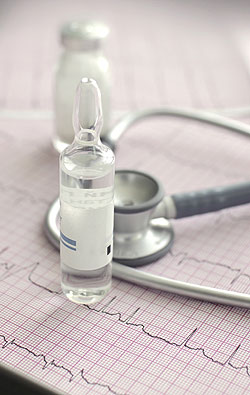
Each test prescribed by the San Carlos Medical Clinic is carefully chosen -- targeted -- based upon the content of the patient interview, and is chosen because there is a high probability that it will illuminate, or eliminate, some potential cause or causes of the complaint or complaints that brought the patient to the medical clinic in the first place.
There are several advantages of this targeted medical testing, not the least of which is cost-savings.
Premium health care at affordable cost
Dr. Yakushevich and the San Carlos Medical Clinic are highly aware that most American and Canadian patients are paying for medical services in Mexico with their own funds: Americans are highly unlikely to be reimbursed by their United States insurers, Canadians may -- or may not -- be able to get reimbursed by Health Canada at some point.
Two simple examples illustrate the constant awareness at the San Carlos Medical Clinic of reducing the direct non-reimbursable costs that out patients incur when purchasing health care in Mexico:
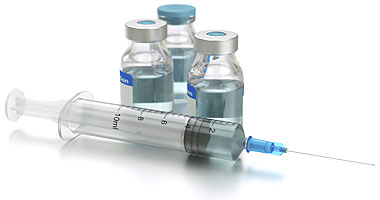
-- free of charge.
While the San Carlos Medical Clinic can order any vaccine anyone could possibly want and perform the vaccination at the clinic if that is what the patient chooses, Dr. Yakushevich recommends that San Carlos Medical Clinic patients take advantage of Mexico's generous and enlightened public health policy and get their immunizations for free at the IMSS health care facility in Guaymas.
• Dr. Yakushevich limits medical testing to the minimum that is consistent with best-practices medicine. This targeted medical testing is firmly grounded in the nature of the patient's specific complaints saves money, and often time as well.
Even in the case of new patients seeking a thorough overview of their health after years (or decades...) have passed since their last proper physical, Dr. Yakushevich does not subscribe to the "received wisdom" so common in United States medical practice that usually takes the form of "if you're X years old and you've never had X test, you should have X test right now".
Dr. Yakushevich is very good at explaining his reasoning regarding testing choices and other choices related to medical treatment and general medical care. He provides understandable information that allows patients to make informed decisions, which brings us to...
Talking to patients respectfully
Part of the modern American / Canadian health care model is an apparent fundamental disrespect for the intelligence of the patient, often expressed as an unwillingness to take the time to give the patient sufficient information to make informed decisions about his / her course of treatment and / or general health care choices.
The tiny window of likely-distracted time that an American primary care physician spends on the average patient "encounter" (see first section above) probably plays into this dynamic. But at the end of the day, the physician's answer to questions about medical issues often amount to "because I told you so", which is the way you talk to a 5 year old, not an adult.


A student of several forms of Eastern medical practice since his days in medical school, he is well aware that these practices can yeild positive results for patients, and is experienced at integrating Western medical treatments with ongoing use of Eastern medical practices.
An example of how Dr. Yakushevich educates San Carlos Medical Clinic patients
The Perennial Generic Pharmaceutical Question
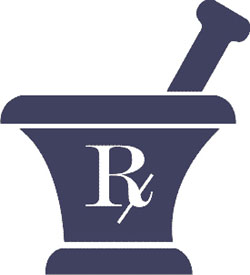
All too often, when a patient questions an American or Canadian doctor about why not to fill the prescription with a generic, the answer is "because they're not as good" -- which really provides no new information and is simply a re-statement of the doctor's bias against generic drugs.
In a nutshell: "because I told you so".

arranged from more reliable to less reliable
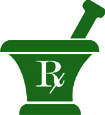
These prescription medications are the Gold Standard for any prescription drug and, not surprisingly, the most expensive.

These prescription medications can save patients considerable amounts of money and are, in fact, the same as the original patented drug.
the method disclosed in the patent
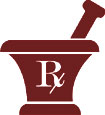
While there are usually a number of ways to chemically synthesize any given molecule, once a drug company deviates from the method disclosed in the original patent, the patient is entering The Gambling Zone.
While manufacturers who use these manufacturing methods are loath to admit it, pharmaceuticals manufactured in a manner different than the method disclosed in the patent often contain molecules that are not identical to those of the original drug, even if they are similar.
Unfortunately, many pharmacies in Mexico sell this third category of generic medications -- and not just the notable and highly popular Farmacia Similares (Similar...), but other pharmacies as well.
never to use this third type of generic prescription drug.
For this reason Dr. Yakushevich and the San Carlos Medical Clinic provide patients who would like to save money by purchasing generic prescription drugs with a list of pharmacies in Guaymas that sell ONLY the best-quality generics that are manufactured to patent specifications. Isn't that better than "because I told you so"?
Understanding the limits of treatment in a medical clinic setting
Dr. Yakushevich believes that an essential cornerstone of patient patient safety in a medical clinic setting is understand the limits of the what can be safely accomplished in a clinic by the primary care physicians who work there.

Some medical clinics and general practice physicians in San Carlos / Guaymas claim that they can safely conduct colonoscopies and endoscopies within their clinics and medical offices.
Dr. Yakushevich -- whose opinion is based upon his many years as a surgeon in Russia and in Mexico and broad and deep experience with surgical procedures of all types -- strongly disagrees.
Both of these procedures are substantially invasive, and require the use of powerful anesthetics that can produce serious complications such as blood clots, pulmonary embolisms or deep venous thrombosis (DVT) -- and sometimes lead to life-threatening complications such as heart attack or stroke. Both procedures carry a small but tangible risk of perforation of internal organs.
Dr. Yakushevich believes that these procedures -- and others that are advertised as being "safe" at medical clinics in San Carlos / Guaymas -- should only be performed by gastroenterologists and anesthesiologists who are performing the procedures every day: usually multiple times per day.
A measure of the doctor's commitment: Dr. Yakushevich has peformed many colonoscopies in his 30 year career, but won't do so now because he is not performing them regularly.
Dr. Yakushevich and the San Carlos Medical Clinic choose to partner with the best gastroenterologists and anesthesiologists in Guaymas to provide our patients with the highest quality colonoscopy and endoscopy procedures that minimize the possibility of unfortunate outcomes.
Dr. Yakushevich makes every effort to be available to accompany patients to their procedures upon patient request.
Strict patient communication, diagnosis, prognosis, treatment and
medical record confidentiality
It can not be overstated how strongly Dr. Yakushevich believes in the confidentiality of all information pertaining to his care for San Carlos Medical Clinic patients.
Absolutely no information about patient care at the San Carlos Medical Clinic is shared with anyone or any entity -- including but not limited to spouses, siblings, friends, children or insurance companies -- without the explicit consent of the patient.